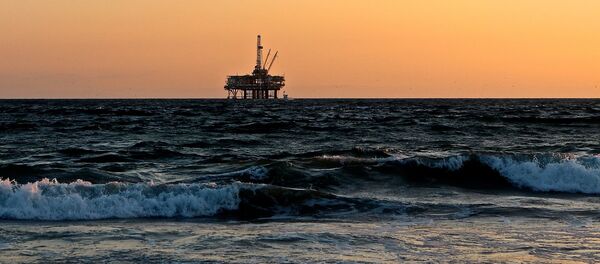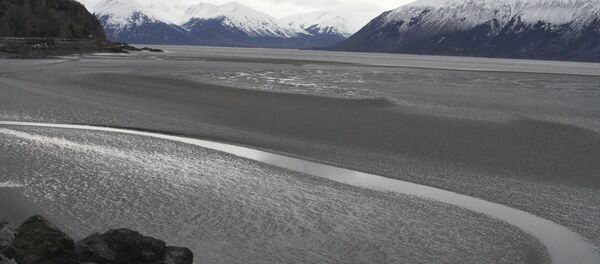The hydrocarbon-rich part of the Eastern Mediterranean has become a stumbling block in relations between Ankara, Athens, Cairo and Nicosia. Cypriot and Turkish experts discussed with Sputnik the statement made my Donmez and the possible consequences and effect of this move by Ankara on the situation in the Mediterranean region.
READ MORE: Oil Prices Ease as US Drilling Gains Momentum
Necdet Pamir, the Chairman of the Energy Commission of the Republican People's Party (CHP) and also the chairman of the Committee on Energy Policies of the Chamber of Petroleum Engineers of Turkey, told Sputnik that the start of exploratory drilling that's planned for October 29 has a symbolic meaning:
"On this day the proclamation of the Republic of Turkey is celebrated. Thus, in the Minister's statement indicates that there an emphasis on the country's national interests. In recent years, large-scale hydrocarbon exploration has been carried out in the Eastern Mediterranean region, and large reserves of natural gas have been found in the zone belonging to Israel. We are talking about 1 trillion cubic meters of gas."
Necdet Pamir also noted that the Greek Cypriots have already started drilling work unilaterally off the south of the island, contrary to Turkish law.
Turkey maintains that the resource exploration in that area ignores the rights of Turkish Cypriots to the ethnically divided island nation's natural resources.
According to Pamir, countries that share a Mediterranean Sea coastline have opposite views when it comes to the exclusive economic zone, which leads to the deepening of contradictions in the region.
"The EU and the US are supporting the Greek side in its carrot and stick strategy. In this difficult situation, the presence of Turkey's own seismic vessel and drilling platform is very important," he noted.
Mr Pamir also stressed that this move by Turkey will strengthen the positions of Ankara and the TRNC during the negotiations process on the Cyprus issue:
"If Turkey can find a gas field during the exploration of hydrocarbons that will go on for five months, it will help put an end to the irresponsible and unfair negotiating format which is demonstrated by the Greek side. The Greeks will be forced to change their tactics, and perhaps the whole course of the negotiation process will change. In addition, this step could both help Turkey meet its gas needs and solve the problem of electricity needs of the TRNC," he said.
In turn, journalist Ceyhun Bozkurt told Sputnik that Fatih is Turkey's first drilling ship, putting Turkey on the list of 10 countries that now have their own vessels for drilling and exploration, while the construction of a second drilling vessel is set to begin shortly.
"To meet the world's growing energy needs, mainly we are talking about the countries of the Asia-Pacific region, the offshore reserves play a very important role today. The construction of drilling vessels suggests that Turkey understands the current situation very well. Our country is sea-bound from three sides. In the Black Sea, oil and natural gas exploration is periodically carried out. In the Aegean Sea, such work is currently not being carried out due to the ongoing conflict with Greece over the continental shelf. However, the importance of the Eastern Mediterranean is gradually increasing. When it comes to this area, the island of Cyprus first comes to mind. In the early 2000s, large natural gas and oil fields were discovered here, after which interest from major powers gradually began to grow in this region. In addition, neighboring countries also began to show interest."
Bozkurt believes that Turkey is right to focus its attention on these territories, but it's not the only one interested:
Andreas Pentaras, the former head of the Cyprus Intelligence Service, told Sputnik that if Turkey starts drilling off the coast of Cyprus it could lead to a serious crisis.
"The minister did not specify exactly where in the Mediterranean the work will be carried out, but earlier statements by the former energy minister mentioned that the first exploratory drillings will be carried out in the exclusive economic zone of Turkey near Antalya and Messina. At the moment we do not know whether this decision is still in force or whether exploratory work will be carried out elsewhere," the former intelligence chief said.
Explaining the situation in Cyprus, Pentaras noted that "Turkey has illegally appropriated most of the exclusive economic zone of Cyprus to the west of Paphos." In particular, he stressed that Turkey appropriated about 30% of the area of blocks 4, 5, 6 and 7 of the Republic of Cyprus. "In this region, since 2008, Turkey does not allow the Republic of Cyprus or other states to operate. In addition, access is closed to both research and fishing vessels." Mr Pentaras also added that Turkey is taking similar action in the Kastellorizo area.
"Therefore, if Turkey's exploratory drilling will occur in these territories, in other words, in territories belonging to the exclusive economic zones of Cyprus and Greece, problems will arise that will lead to a crisis." Mr Pentaras noted that it is necessary to wait and see where drilling will be done.
Responding to a question about whether he believes that there are indications that Turkey will actually choose this location for exploratory drilling, the ex-intelligence chief drew attention to publications in the Turkish media, according to which drilling will be carried out between blocks 8 and 9 belonging to the Republic of Cyprus.
"You understand that if all this is true, we will enter into a serious crisis, and no one knows what kind of consequences it can lead to."
At the same time, Mr Pentaras stressed that Cyprus and Greece had already taken some steps, in particular, an appeal for the use of "a number of preventive measures by the EU and the UN."
"Indeed, two days ago, the spokesperson of the European Commission, Mr. Schinas, said that the EU fully supported the right of the Republic of Cyprus to conduct exploratory work in its exclusive economic zone and called on Turkey to refrain from any threats or other activities in this region. The Republic of Cyprus has no military means to prevent such actions on the part of Turkey and will be limited to diplomacy. However, I believe that if exploratory drilling will take place in the Kastellorizo area, it can lead to a serious crisis and in this case, Greece will have to act, and this may including military means," he said, adding that Turkey, in his opinion, will not go that far.
The views and opinions expressed by the contributors do not necessarily reflect those of Sputnik.





